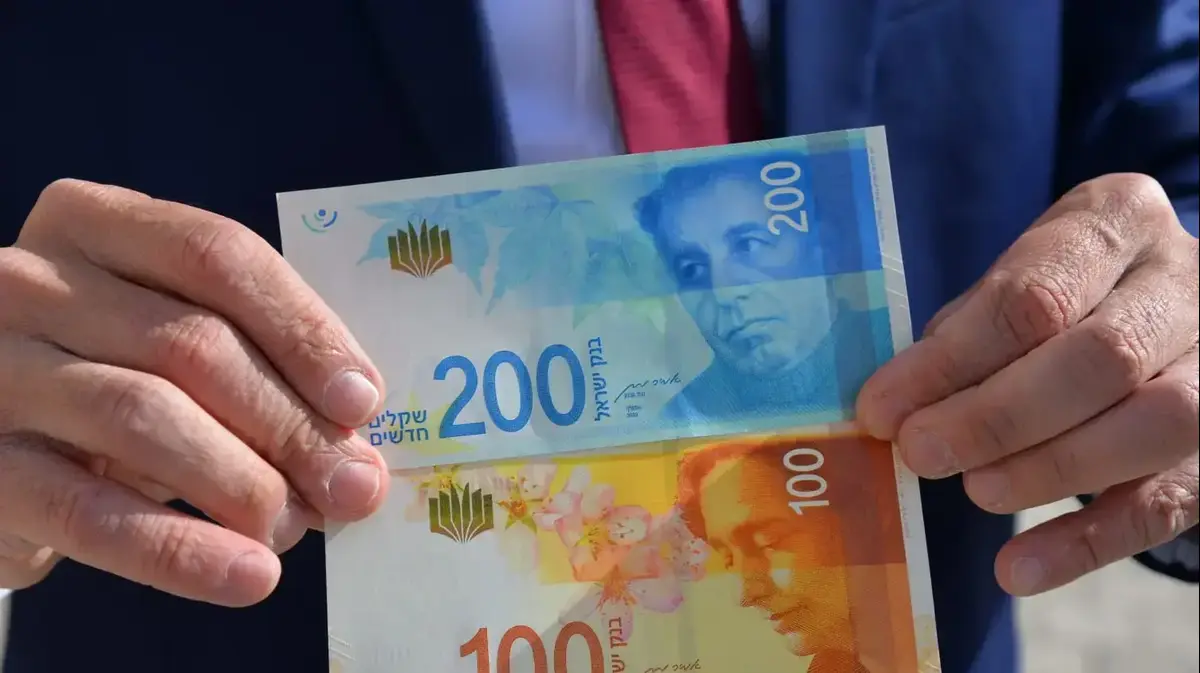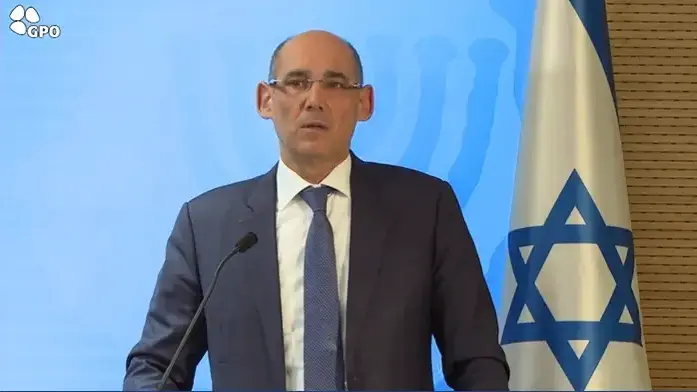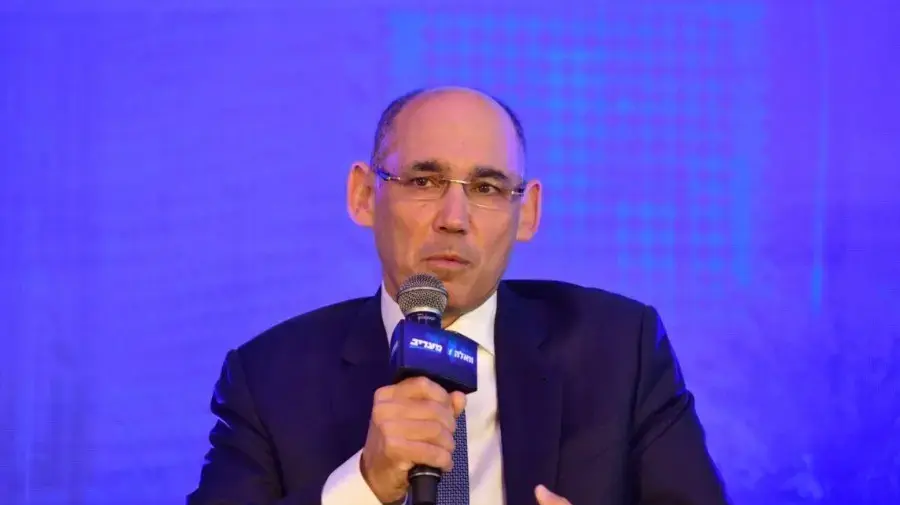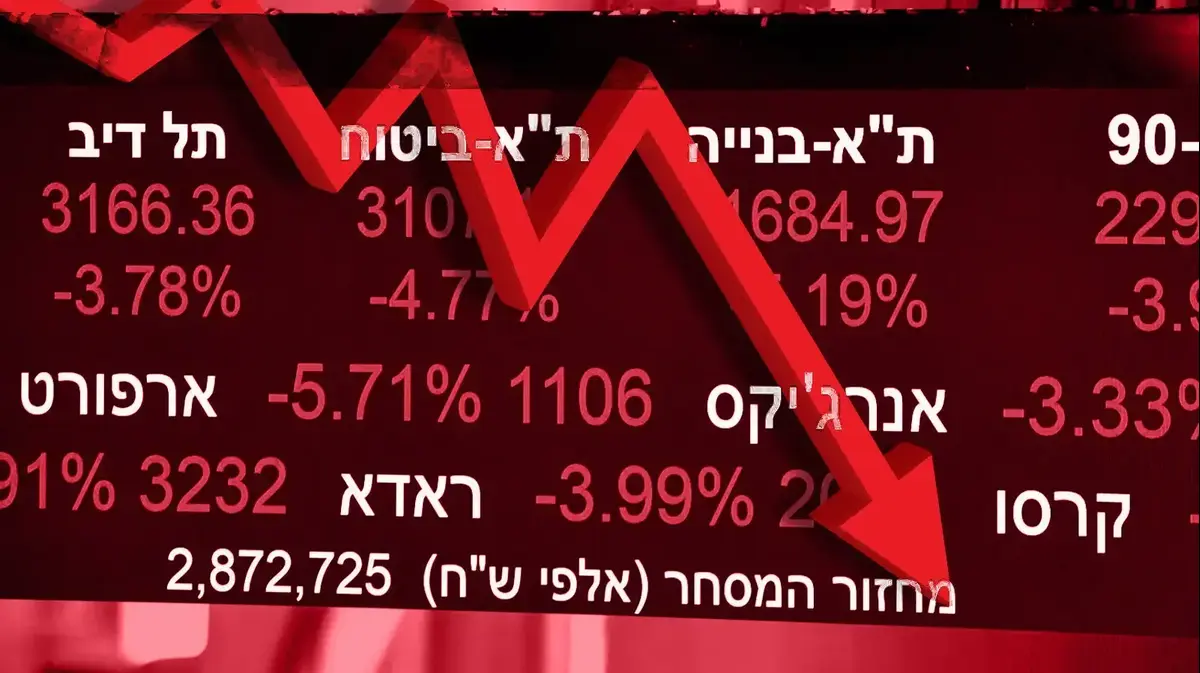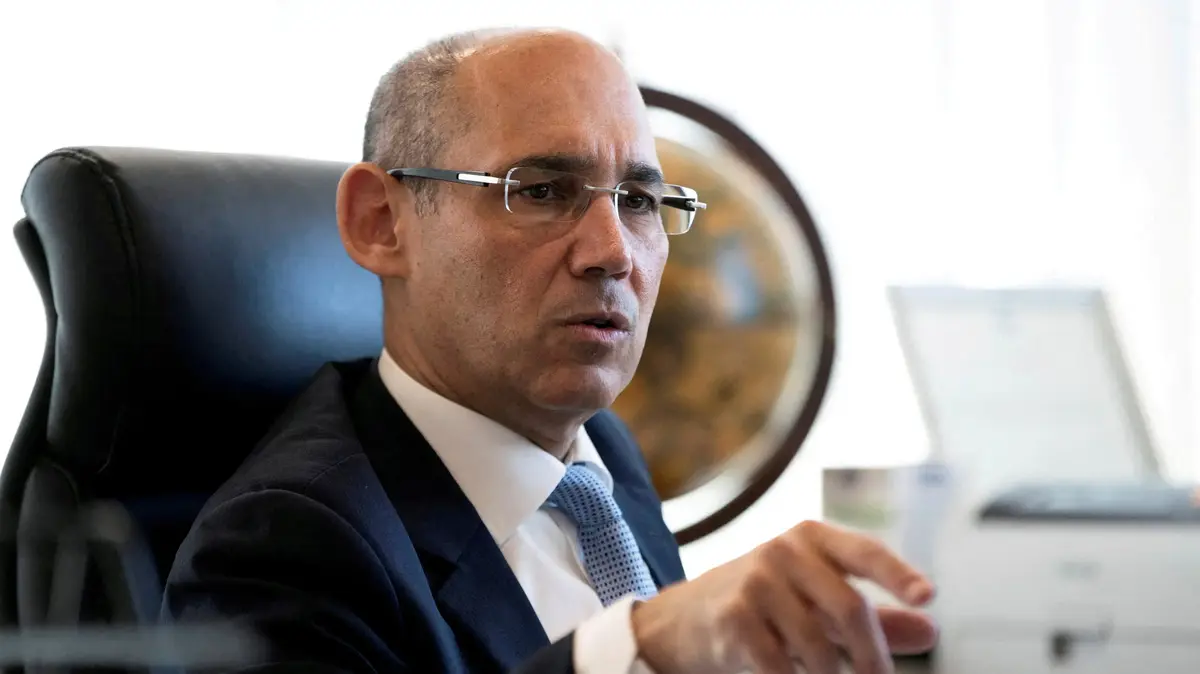Prof. Amir Yaron, Governor of the Bank of Israel. The bills he holds in his hand are now worth less. What needs to happen for him to intervene in Forex trading? (Photo: PR)
The weakening trend of the shekel led many to ask why the Bank of Israel does not intervene in the foreign exchange market and sells dollars in order to strengthen the local currency slightly. The voices calling on the Bank of Israel to intervene in the market have even strengthened in the past week, especially after the Governor's speech at the Eli Horowitz Conference on Berra and Economics (of the Israel Democracy Institute), in which the Governor argued that if the depreciation continues, the interest rate will have to increase.
On the face of it, one can understand the puzzlement—if the depreciation bothers the Bank of Israel, wouldn't it be better for it to act in the foreign exchange market instead of raising the interest rate again, which would make it difficult for all of us? However, we would not rush to count on the Bank of Israel to act in the foreign exchange market against the trend for three main reasons:
1) Although it is difficult to notice this sometimes, Israel is a Western and advanced country and like almost all Western and advanced countries, its exchange rate is free and not controlled by the government or the central bank.
There is no shortage of research and experience to show that countries that tried to manage their foreign exchange markets ended up facing worse consequences. In general, a central bank can control only two of the three factors - inflation, interest rates and the exchange rate. In Israel (again, as in almost every country in the world) the central bank controls the interest rate in order to influence inflation and the exchange rate is set in the market.
If we try to influence the exchange rate, then either inflation may get out of control or the interest rate in the economy will not be at the level the Bank of Israel wants it to be at.
2) But wait, say: The Bank of Israel intervened for years in the foreign exchange market. So maybe the whole explanation in the above section is just academic nonsense that has no perception of reality?
Well, the Bank of Israel apparently took into account at the time that they might lose control of inflation or interest rates, but at that time inflation was so low that the bank was probably willing to take the risk. Today, the risk of intervention is that the effective interest rate in the economy will be higher than what the Bank of Israel is interested in, and it is not certain that this is something the Bank wants to happen.
Moreover, the Bank of Israel intervened for years with the aim of weakening the shekel rather than strengthening it. This is a big difference, since in such a situation the Bank of Israel has to print shekels and buy dollars. How many dollars can I buy? There is no limitation since the bank can generate as many shekels as it wants.
On the other hand, when you want to strengthen the local currency, you have to sell dollars, but the amount of these is limited according to the bank's foreign exchange reserves. Such a process is much riskier, since if the foreign exchange reserves are thinned, the pressure to depreciate the shekel will strengthen, and then the Bank of Israel will be forced to continue acting against the trend in order to stop the process, and again and again. In other words, this kind of process usually invites speculation about the bank's cardiovisibility and may end badly.
3) The Bank of Israel's foreign exchange reserves are indeed large, much larger than what an economy the size of Israel needs, but they are intended for emergencies. Although the issue of the exchange rate grabs all the headlines, if we return to proportions we see that overall there was an 11.6 percent depreciation from the low in January.
That's quite a bit, but it's not a depreciation that indicates a crisis. Even if the Bank of Israel ignores the first two items above, it will probably choose to intervene in the foreign exchange market only if the depreciation is much sharper and makes it difficult for the economy to continue to operate. It is unlikely that this will happen before the exchange rate crosses the NIS 4 threshold to the dollar.
Uri Greenfeld, Psagot Investment House's chief strategist (Photo: Rami Zarenger)
The probability of an increase in the interest rate increases
So where does all this put us, the consumers? First, the depreciation that has already existed until now will be reflected in the coming months and will lead to further price increases. Some of the depreciation was reflected immediately, mainly through the price of gasoline (which in the meantime is managed by the Minister of Finance).
However, importers – certainly in industries where there is significant competition – are in no hurry to pass on the depreciation to the consumer immediately, ignoring price increases, since they still have inventories bought at a lower exchange rate.
The process of increasing prices takes several months, so it is reasonable to assume that we will continue to feel the effects of the depreciation on our pockets even if the exchange rate remains at the current level. Beyond that, it is impossible to ignore the statement by the Governor of the Bank of Israel and the probability of another interest rate increase to 5 percent, which increased significantly in the coming week. This increase will, of course, affect the consumer through the credit market and mainly through the prime component of the mortgage.
- money
- Opinions
Tags
- Governor of the Bank of Israel
- Amir Yaron
- USD rate
- Bank of Israel interest rate

